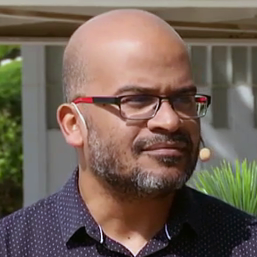 Sixty years after its proclamation, the right to education has become a necessary but insufficient right in the terms under which it was conceived. Expanding on the right to education cannot remain confined only to improving compulsory education, but must also progress towards an expansion of its scope, both in terms of a preventive dimension before compulsory education begins – specifically focusing on early childhood education– and by extending the latter – through the normalization of lifelong learning.
Sixty years after its proclamation, the right to education has become a necessary but insufficient right in the terms under which it was conceived. Expanding on the right to education cannot remain confined only to improving compulsory education, but must also progress towards an expansion of its scope, both in terms of a preventive dimension before compulsory education begins – specifically focusing on early childhood education– and by extending the latter – through the normalization of lifelong learning.
At the same time, the right to education constitutes a domain that cannot be exercised individually but rather collectively. The potentialities of interrelations and interconnections at all levels and in all areas, in what can be called the world-network, locates the danger to exercising the right to education as an individual right on the edge of inequality and exclusion. Only the right to education exercised collectively and for the community can facilitate the transformation of education into a social process that fosters equality of rights and social inclusion. That is why we speak of education as a ‘right that generates rights’ and as a space for building social coexistence and cohesion.
In the vanguard of this perspective education is understood as a collective right, or as an individual right that can only be exercised collectively. This is the Right to an Educating City. An option that sees education as a collective asset in the service of correcting social inequalities, a tool that can democratize the educational management and practices that seeks the co-responsibility of all social stakeholders The educating cities emphasize the leading role of the citizenry as a whole in the unending process of quality, decent lifelong education for all.
In the educating city, the equality in the right to education is exercised from the standpoint of equity, since the starting points of each individual and each community are unequal. That is why a homogenizing approach to education in a world, with high indices of social inequality generates segregation. Organizing cooperative networks amongst social agents committed to education triggers the enormous educative potential of our society, redolent from top to bottom of information, and by its organized version, knowledge. In the educating city, neighbourhoods educate.
In the educating city educational inclusion is exercised to the benefit of the entire population, and not only for those persons with special educational needs, be they temporary or permanent. The denial of diversity in all its dimensions (gender, social class, sexual orientation, and ethnic or cultural origin) is a focal point of social exclusion. In the educating city there is a place for everyone. Everyone receives and everyone contributes. In order to educate we must educate ourselves.
On 30 November we will all celebrate our International Day, a global alliance of cities that educate and learn. Please join us.
Miquel Àngel Essomba
Delegated Chairman of the International Association of Educating Cities

This year we are celebrating the second International Day of the Educating City, after its success last year, which had the support of more than 140 cities. These cities joined their voices in order to launch a unitary, clear and strong message in favour of education as a political tool for social transformation and to foster fairer, more cooperative and inclusive cities.
Being an educating city entails placing people at the centre of the political action, and to offer a holistic education which allows each and every citizen to find its place in society. This means having citizens who are positively committed towards contributing to the improvement of their communities, but also implies having political leaders who listen to the citizens, and take on board the proposals of the civil society who share the common goal of building an educating city.
Currently, there are many local governments on all continents that are working to contribute to meeting the UN’s Sustainable Development Goals (SDGs); and it is precisely the ensuring of inclusive and equitable quality education and the promotion of lifelong learning for all that constitutes one of the 17 goals of the new sustainable development agenda. This is a goal whose importance stands out for also playing a key transversal role in the advancement of the ensemble of SDGs; only through values education will it be possible to foster active citizenship and resilient institutions.
It is in this context, facing a world where individualism and the interests of the market seem to prevail over the common good, that we dare to launch this year’s International Day with the theme of “The Right to an Educating City” as the platform for the activities. We launch this initiative with the aim of contributing to rethinking our cities so that they foster inclusion and equality of opportunities, social justice, participatory democracy, education for active citizenry, coexistence amongst different cultures, dialogue between generations, sustainability and planning of an accessible interconnected city that stimulates eagerness for learning and offers learning opportunities for personal and collective growth.
We are talking about a Right that can only be won by joining forces with the educational community and civil society as a whole. That is why this year we also want to publicly recognize the multiple educative agents active in our cities and celebrate this Day especially with them. Without a doubt their commitment, dedication, effort and enthusiasm will enable us to progress together towards shaping such kind of city.
We are convinced that education is a driver of change that opens up a door to hope, and that if our cities progress we will all benefit. That is why we are inviting you to renew your commitment and make it public by celebrating this second International Day of the Educating City with us.
Marina Canals Ramoneda
General Secretary of the International Association of Educating Cities